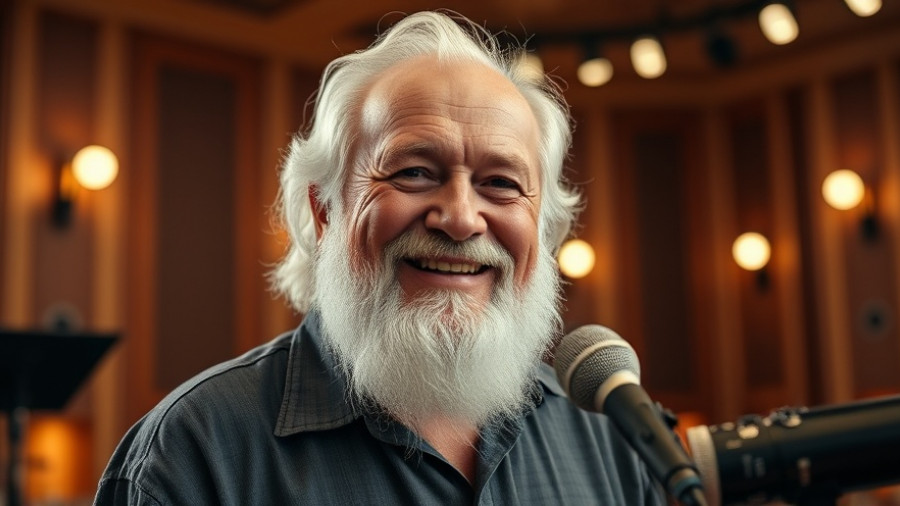
The Heartbeat of Tradition: Exploring Fiddler on the Roof
In the world of musical theater, few productions resonate as powerfully as Fiddler on the Roof. Through its iconic opening number, "Tradition," the audience is plunged into the intricate dynamics of the Jewish community in Anatevka, where life balances precariously atop the proverbial roof. As the phrase unfolds—a combination of heartfelt lyrics and rousing melodies—it invites us to reflect on the nature of tradition itself and the role it plays in our lives.
In 'Signature Theatre's Fiddler on the Roof Performs 'Tradition', we dive deep into the theme of cultural heritage, exploring key insights that inspire this analysis.
What Makes Tradition So Important?
Tradition acts as a connective thread in every culture and community, serving not just as a means of survival but as a source of identity. In this poignant song, characters share their roles: fathers, mothers, sons, and daughters all contribute to the fabric of Anatevka's way of life. The essence of tradition is a reminder that despite the chaos of living, it offers stability; it allows individuals to reconcile the past with the present.
Why We Hold Onto the Past
The lyrics compel us to ponder: why do we cling to age-old customs, even in the face of evolving societal norms? For many, these traditions are like the fiddler balancing on the roof, providing an anchor in turbulent times. In an age where change is fast and often overwhelming, traditions offer a sense of familiarity and comfort. They create a continuity through generations, allowing individuals to feel part of something greater than themselves.
Reflecting on Historical Context
The backdrop of Fiddler on the Roof adds to its poignancy. Set during the early 20th century in Tsarist Russia, the story is rooted in real historical upheaval. This context enriches the narrative and makes the characters’ struggles with tradition all the more relatable, as we see them grappling with modernization and the pressures of a changing world. It's a reflection of how traditions sometimes must evolve to remain relevant.
Modern Parallels: Tradition in Our Lives
As we view Fiddler on the Roof today, it's easy to draw parallels between the experiences of its characters and today's society. Young people often find themselves torn between keeping family customs and pursuing their own aspirations. The struggle between adhering to tradition and embracing individuality is timeless and universal.
The Importance of Artistic Expression
The arts serve as a vessel for self-expression, allowing communities to share their traditions while adapting them for future generations. As theatergoers, when we experience productions such as Fiddler on the Roof, we participate in a narrative that honors the past while inviting conversation about the future.
Ultimately, Fiddler on the Roof is more than a story about tradition; it's a celebration of life and the connections that bind us together. As this production unfolds, it reminds us that while we may all be fiddlers on our own roofs, it is our traditions that allow us to create distinctive tunes in harmony with one another.
As theater lovers, embracing these narratives enriches our understanding of our own traditions. It not only entertains but fosters conversations that bridge cultural divides and highlight shared human experiences. As you move through your day, consider how the traditions in your life shape who you are today.
 Add Row
Add Row  Add
Add 




Write A Comment